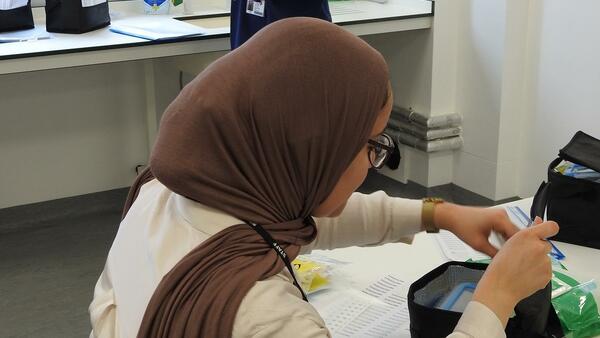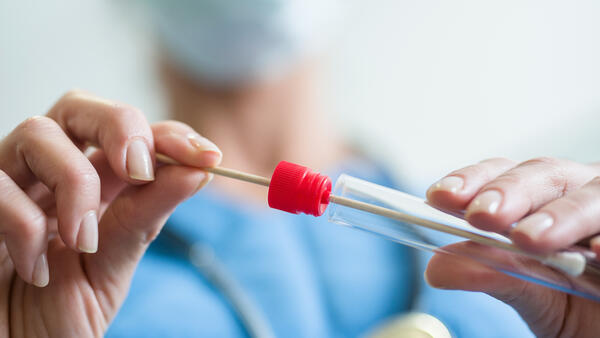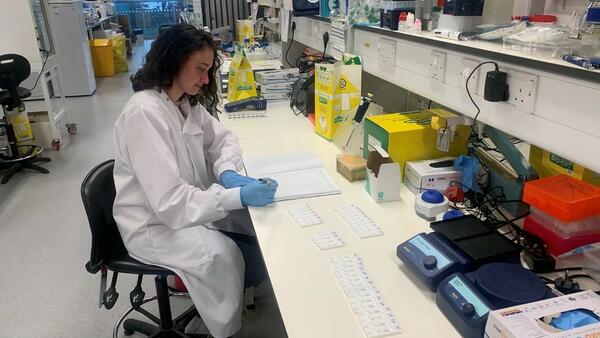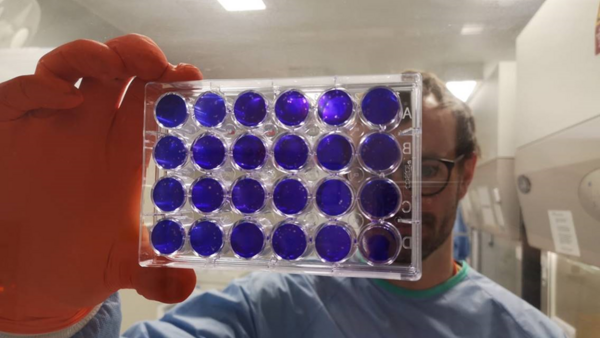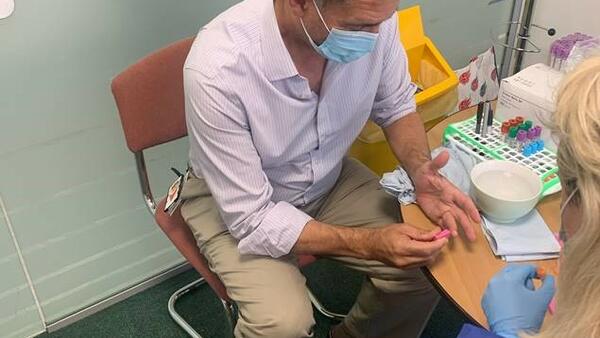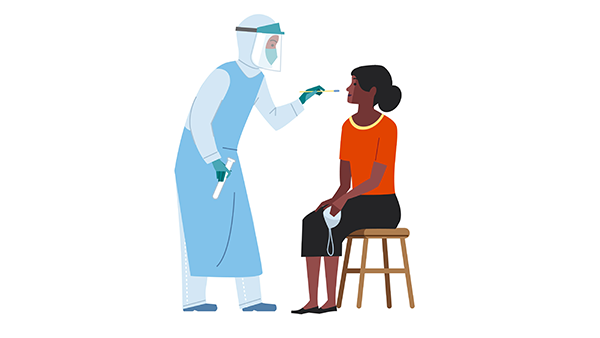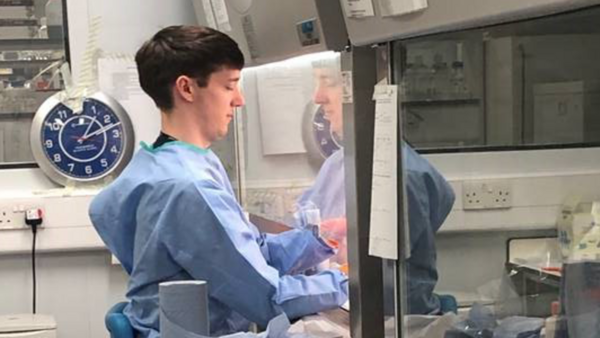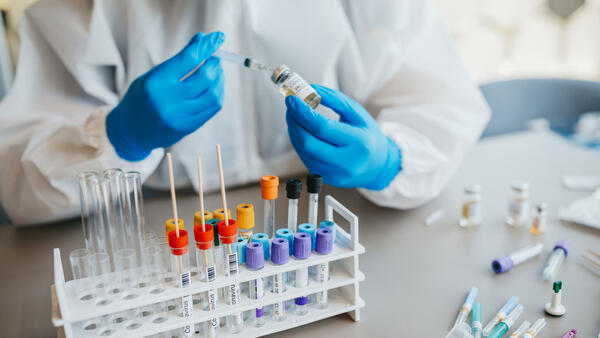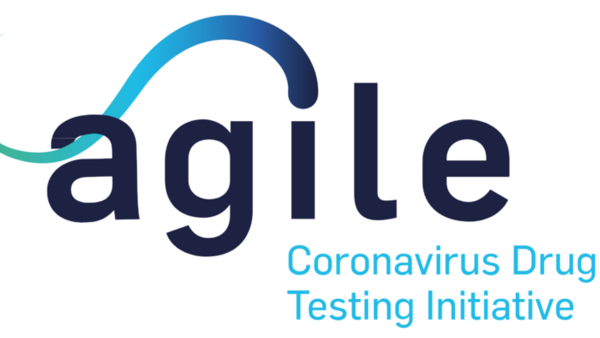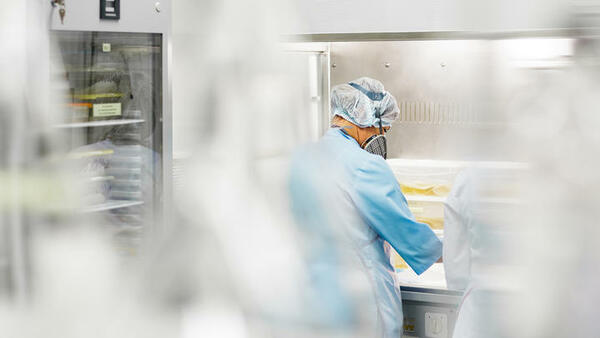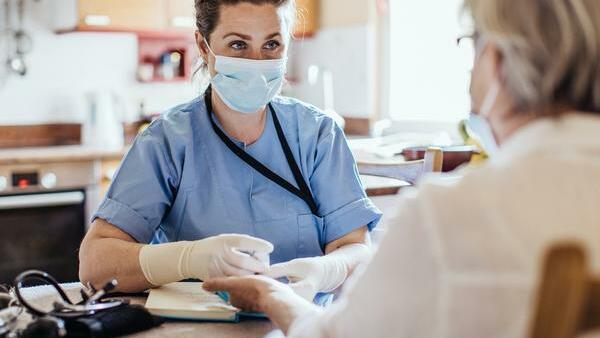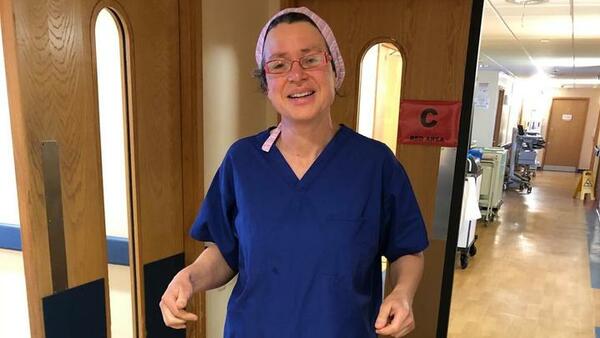
COVID-19: our research pipeline
LSTM has a central role in the response to COVID-19 and has partnered with multiple institutions and industrial organisations to target the virus from several angles across the whole research pipeline, from the development and validation of effective diagnostics to the discovery of new treatments and vaccines.
The Liverpool City Region has the largest concentration of infectious diseases research in the UK and has focused and mobilised its resources to address COVID-19 fast and effectively. Additionally, Liverpool has over 25 laboratories that operate to Category Level 3 (CL3) standard, the level needed to handle the COVID-19 virus safely, which is the highest concentration of CL3 laboratories in an academic setting in the UK.
LSTM’s vision is to translate its research findings into practical benefits for people and this is ultimately how, as an institute, it is responding to the current COVID-19 pandemic.
Research pipeline – Therapeutics
Establishment of a COVID-19 preclinical pipeline for therapeutics
LSTM’s Centre for Drugs and Diagnostics is part of the Centre of Excellence in Infectious Disease Research (CEIDR) COVID 19 initiative in Liverpool which aims to facilitate COVID research sharing expertise and laboratory facilities. Systems have been established for the rapid evaluation of therapeutic compounds, to validate and select compounds for clinical evaluation.
AGILE
The AGILE initiative is a collaboration between the University of Liverpool, Liverpool School of Tropical Medicine, Southampton Clinical Trials Unit, University of Southampton and Lancaster University and other partners. AGILE has been developed by infectious disease clinicians, clinical and pre-clinical pharmacologists, clinical trials specialists and statisticians. The result is a clinical trials platform that can test new drugs for COVID-19 and identify faster than ever before those compounds which could be game changers in the battle against COVID-19.
Culture and study of COVID-19 virus
Researchers at LSTM are in the unique position to have the capacity to work with infectious SARS-CoV-2 (the cause of COVID-19) and complete assays to quantify infectious virus.
Prevention
Improving Health Systems: Adjusting to COVID-19
LSTM researchers and partner organisations are looking into how Liverpool’s health system has been adjusting to the ongoing COVID-19 outbreak. It hopes to learn from similar adjustments made by the Liberian health care system during the 2014-2015 Ebola epidemic and its current response to COVID-19.
The aim is to assess how health systems can adapt during disease outbreaks whilst also aiming to ensure equitable and quality delivery of its services.
Clinical Characterisation and Biobanking
The University of Liverpool hosts the UK’s COVID-19 biobank, supported by awards from Medical Research Council (MRC) and the Department of Health and Social Care, National Institute for Health Research (DHSC NIHR), working in collaboration with International Severe Acute Respiratory and Emerging Infection Consortium (ISARIC) on its ISARIC-4C study. The University of Liverpool is curating the UK’s biobank of samples from patients with COVID-19, which will be available to researchers all over the country.
Viral Dynamics and Protective Immunity

A community-based project is being developed to study viral transmission, determinants of protective immunity, potential for re-infection, and behavioural determinants of transmission. We are also studying the role of cellular immune responses in severe COVID-19, in collaboration with the University of Sheffield, Imperial College London and the University of Oxford.
Therapeutics, Early Phase Clinical Trials and Pharmacokinetics-Pharmacodynamics
Hollow fibre infection models are being progressed to assess new antiviral compounds. Clinical protocols are in development to test experimental therapies for COVID-19. Clinical trials are supported by Good Clinical Practice (GCP) bioanalytical capabilites and PK-PD modelling. Prescribing resources to support clinical trials of experimental COVID therapies have also been developed.
Pathogen Biology

Researchers can grow and store SARS-CoV-2 for experimental studies. Real-time sequencing enables rapid contact tracing, assessment as to whether SARS-CoV-2 is evolving and whether the sequence has an impact on the severity of disease, developing a better understanding of host risk factors for acquiring the virus and advancing to severe disease.
Epidemiology and Public Health Informatics
Combined Intelligence for Public Health Action (CIPHA) and the Liverpool City Region Civic Data Cooperative are developing innovative control measures such as smart social distancing and symptom monitoring. Clinical epidemiology projects include transmission of SARS-CoV-2 among healthcare workers and psychological resilience interventions for health and social care workers.
Vaccines
Liverpool’s expertise in vaccines is being deployed to develop and test new vaccines for SARS-CoV-2 based on technology recently established to make a Zika vaccine.
Knowledge Mobilisation, Public and Community Involvement
Social science research is focussing on the well-being of healthcare workers and the general public; understanding how individuals, communities and health care systems perceive risk. We're developing effective communication strategies for public and policy understanding of disease transmission and prevention, supporting the development of resilient populations and wider socio-economic systems.
